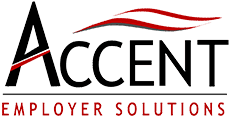Six Tips to Avoid making a bad hire
SBA estimates that the combined hard and soft costs of hiring an employee range between 1.2 and 1.4 times their annual salary, making new hires an important investment in your bottom line.
So, how can you protect your R.O.I by hiring employees that stay? Here are six tips that HR professionals use when making hiring decisions (and guide their clients to do the same):

- Avoid making a rushed decision without checking a candidate out sufficiently. This may sound self-explanatory, but in today’s market, finding help can be a struggle. Finding the right candidate, even more so. Hiring managers may feel pressure to quickly fill positions, but a rushed hire can lead to bad consequences, especially when a few additional details could have prevented a poor outcome. When making hiring decisions, keep long-term goals in mind and ensure the potential candidate aligns with the department and company’s growth goals.
- Don’t skip a full background check. Running a local, state, or federal criminal report on a candidate is helpful, but depending on the position, running specific detailed background reports and conducting a pre-employment drug screen can provide additional insight on whether the candidate is right for your company. For example, if hiring for positions handling finances or high-level responsibilities, checking credit scores can reveal top candidates from potentially disastrous ones. Taking the extra step to conduct this one check could end up saving the company millions of dollars in fines, penalties, mistakes, and possibly avoid embezzlement. A PEO team can provide proper authorization paperwork for the candidate and run any specific background reports as needed.
- Conduct motor vehicle checks and pre-employment drug screens on candidates who are required to drive and/or handle heavy machinery. Even if you require the employee to have their own insurance, hiring an employee with multiple traffic violations, accidents, or tickets can be seen as negligence by the court if the employee causes injury or harm while on the job. Similarly, pre-employment drug screens can help identify individuals who may be a threat to themselves or others in the workplace. Taking precautions shows you and the company have conducted proper due diligence on employees in high-risk positions.
- Pay close attention to a candidate’s employment tenure. Avoid hiring candidates who have high employment turnover or unexplained gaps in employment. One of the first things top recruiters look for in a candidate is their employment tenure. If a potential candidate has a history of short-term employment (one year or less) without a valid explanation, chances are they won’t stick with your company either. Poor employment tenure is a huge red flag and taking risk on such candidates rarely works in your favor.
- Check employment references. Checking employment references is the biggest return on investment for a few minutes of work. While the information a previous company can provide is limited, knowing whether a candidate is or is not eligible for rehire can provide valuable information to help you make the best decision for your company. Likewise, if the dates of employment do not match the dates given by the candidate, that may signal underlining issues that could save you from making a poor hiring choice.
- Use skills tests for positions. Standard skillsets such as bookkeeping, welding, forklift operation, even general administration positions can be beneficial for determining how proficient an applicant is for the job. For example, if high attention to detail is required, a basic proficiency test can determine whether or not the candidate has the right skills for the job. Personality, leadership, and company culture profiles are more costly and involved but when hiring for high-level positions, this type of testing can provide invaluable insight on how the candidate fits with your team and company vision. To save time, your PEO team can direct you to the right types of testing and candidate profiling.
The bottom line is that hiring a good candidate is an investment and takes time, but building the right protocol into your hiring plans can save you and your team from the disruption of a bad hire. Accent PEO has seasoned recruiters and HR Professionals ready to assist with hiring any level position and conducting all recommended background screens and testing. Call us today for a consultation.
Have more questions about hiring?
